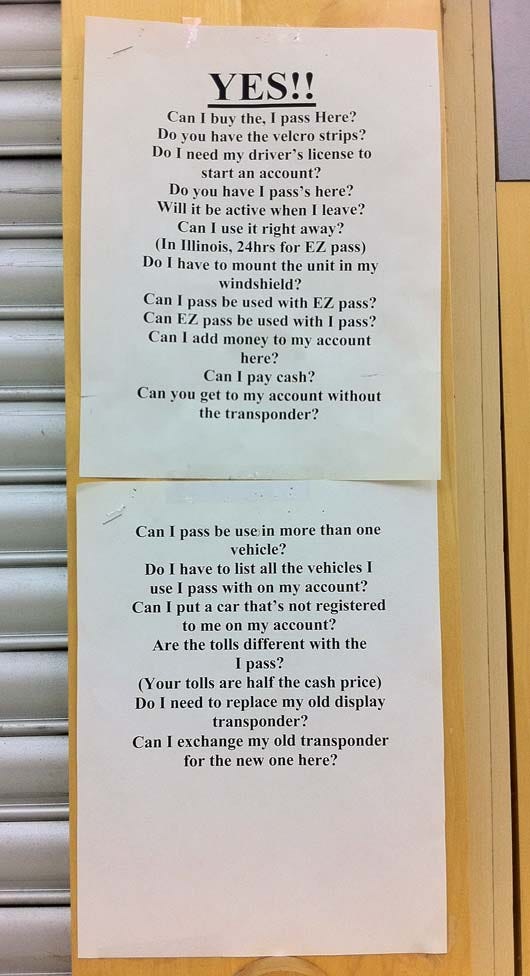Podcast: Play in new window | Download
Subscribe: iTunes | Android | RSS

Today’s interview is with Chase Clemons, a customer support team lead at Basecamp, a provider of project management and team communication software. We talk about Basecamp’s CEO Jason Fried assuming personal responsibility for all customer refunds, what that means in practice, what it’s like to work at Basecamp, what customer service means for them, particularly when they have approx 50 people in 30 different cities around the world and how they deliver great service to their clients.
This interview follows on from my recent interview – The most successful companies start by improving one customer journey at a time – Interview with Don Schuerman – and is number 221 in the series of interviews with authors and business leaders that are doing great things, providing valuable insights, helping businesses innovate and delivering great service and experience to both their customers and their employees.
Highlights from my conversation with Chase:
- This year the CEO of Basecamp Jason Fried assumed personal responsibility for all customer refunds, where all returns would come out of his pay.
- The decision was inspired by the famous little sign that sat on Harry Truman’s desk which said: ‘The Buck Stops Here’.
- In terms of what that could equate to, it is roughly equivalent to the price of a small car over the course of a year. So, although not crippling it is nonetheless a significant and noticeable amount of money.
- In practical terms nothing much has changed but the move reflects Jason’s personal commitment to live demonstrated leadership in every way, whether it is through product, culture, or customer service.
- But, it is a big signal to customers regarding what the company and the CEO stand for.
- Basecamp has been listed as one of Forbes Best Small Companies (Forbes Small Giants), a list of US companies that value greatness over growth.
- Here’s what it’s like to work for Basecamp from Chase’s perspective:
- It’s Chase’s dream job and is the best company he has ever worked for
- It’s an entirely remote company
- Chase gets to work for Basecamp whilst still living on his family farm in Southern Tennessee
- Remote working is built into Basecamp’s culture
- He works with some of the smartest people that he knows and is blown away by the level of care and attention that goes into everything that the team produces from support to design to coding.
- They have approx 50 people in 30 different cities around the world.
- The firm originated in Chicago, there are about 10 people that live in Chicago and they do have an office there. However, for the most part, the office is generally quite empty apart from when it is time for all company retreats and things like that.
- The support team is spread across a series of time zones which allows them to offer close to 24/7 support.
- When it comes to monitoring, sharing and acting on customer feedback they run their own Voice of the Customer effort right inside Basecamp, where they have a project area that is dedicated to capturing any ideas and suggestions (social, email, voice) that come from customers. Whenever a suggestion is made they create a text document in the project area that captures what the suggestion was, what situation the customer was in at the time, what problem they ran into, what they were trying to get Basecamp to do, what their idea was and how it might work.
- They then develop and monitor these ideas, pass them onto the design team with respect to how they might work and then onto the development team to bring them to life so they can test them.
- Their process is all about getting feedback out of the support team’s inbox and into Basecamp so that the design and development teams can see it and help take action on it.
- In this multichannel/omnichannel world, Basecamp only offer support over a couple of channels (primarily email) and that is a conscious choice for two reasons:
- To offer 24/7 support across numerous channels would require a much bigger team and they have made a conscious choice to remain small. They currently have 14 people in their support team, and
- They have chosen to focus on being great in a couple of channels only rather than being average in many.
- That’s not to say that they are not flexible and will pick up the phone and talk to a customer if that is what they want. But, offering phone service and the prospect of having to have the customer wait in a queue with cheesy music is not something they are choose to do.
- For 99% of the time, email support is fine for their customers.
- When I was interviewing Chase the expected response time on their support page was 6 mins (at the time of writing these notes it was 13mins). It’s a dynamic average based on what is going on within support and what they are dealing with. However, the most important thing is that it sets and manages expectations.
- They aim for response times within 30mins – it’s measure not a target.
- Last year they started to aim for faster response times of 3-4mins but that started to change things ….not for the customer but for the team and it started to have a negative impact on the team’s own experience.
- This is fun and makes so much sense – Check out Basecamp’s move to YesAQs that was inspired by a sign in a roadside rest stop.
- Chase and his team are focusing on two big areas right now:
- Getting better at gathering VoC data, using a Jobs To Be Done methodology, so that they can do a better job of integrating that into their ongoing development, and
- Introducing Livechat as a support channel. However, they are figuring out how they can do it so that it is right for their customers and their team, especially given their decision to remain small.
- A Wow experience for Chase is all about getting a human reply but getting it at the right time.
- Check out Basecamp.com . Chase says your work will get better when you use it and he would recommend it even if he didn’t work for the company.
About Chase
 Chase Clemons is a customer support team lead at Basecamp, where he has worked for over 6 years now.
Chase Clemons is a customer support team lead at Basecamp, where he has worked for over 6 years now.
He also hosts the Support Ops Hangout.
Find Chase on LinkedIn here, check out his articles on Medium here and say Hi to him and the folks at Basecamp on Twitter @chaseclemons and @basecamp.
Photo Credit: chrisinplymouth Flickr via Compfight cc





I don’t mean to diss Basecamp, but come on, it’s 2017 and there are so many PM tools that are better AND free. Bitrix24 – free unlimited projects with Gantt, time tracking, client management, quotes and invoicing. Basecamp doesn’t have this even in paid plans.
Asana – totally free for 15 people with unlimited projects. Trello – free and unlimited. I could go on and on.